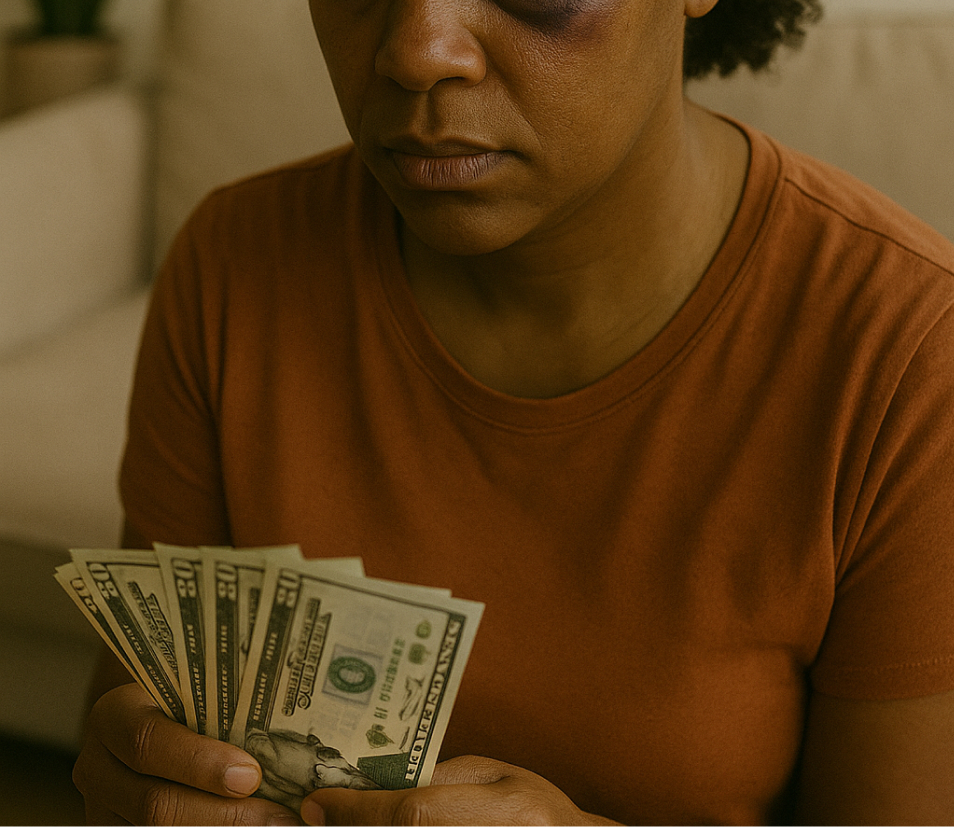For many Nigerian women, leaving an abusive marriage or relationship is not just about escaping physical harm,
it’s a battle for economic survival. Abuse comes in many forms: financial control, emotional torment, psychological
manipulation, and even cultural pressure to stay in toxic unions. One of the most powerful weapons abusers use is financial
abuse, trapping women in marriages not out of love, but out of desperation to retain control. After divorce or separation,
financial empowerment becomes more than just survival, it’s the key to healing, dignity, and a future free from fear.
This article explores how financial independence is not just about money for Nigerian women, it’s about reclaiming power, rebuilding
lives, and breaking free from dependency.
Understanding Financial Abuse in Marriages
Financial abuse is a silent killer of women’s independence. In Nigeria, where many women rely on husbands for survival, abusers exploit
this dependency. Common tactics include:
Withholding money- Giving a meagre “allowance” or controlling every naira spent.
Blocking access to bank accounts – Preventing women from having their own savings or income.
Sabotaging careers – Forbidding work, disrupting businesses, or isolating women from opportunities. We at TOO foundation has handled a
case where the husband destroyed the wife’s goods and locked her store.
Forcing debt– Taking loans in a woman’s name or ruining her credit.
Many Nigerian women stay in abusive marriages because they fear poverty, societal shame, or lack family support, this makes them find
themselves running back or still mandated to keep contact with their abusers. Financial literacy and security are not just tools, they
are lifelines for escape and recovery.
Why Financial Empowerment Matters for Women After Divorce/Separation
1. Restoring Dignity & Control– Financial independence helps women regain confidence. Managing their own money, whether through trading,
a small business, or a formal job, gives them back their voice.
2. Protecting Children – Many Nigerian mothers stay in abuse "for the sake of the children." But true stability comes when a woman can
provide for her kids without relying on an abuser.
3. Rebuilding Credit & Identity– Many survivors have no bank account, no BVN, or ruined credit. Empowerment means learning to save, invest,
and secure loans independently.
4. Breaking Generational Poverty– Financial freedom stops the cycle of abuse. When mothers are empowered, daughters grow up knowing they
don’t have to depend on a man for survival.
5. Escaping Societal Pressure– Nigerian culture often shames divorced women. Financial strength helps women ignore stigma and build new lives.
Key Steps to Financial Empowerment for Nigerian Women
1. Financial Education – Programs should teach:
- Basic budgeting – How to manage daily expenses, no matter how small.
-Saving strategies – thrift (traditional savings), mobile banking (Opay, PalmPay), and cooperative societies (my mother is one of the
successful
beneficiaries of cooperative societies)
- Debt management – How to clear debts and avoid exploitative loans.
- Legal rights– Understanding alimony, child support, and property laws in Nigeria.
2. Skills & Employment – Many Nigerian women lack formal education but have entrepreneurial spirit. Support includes:
- Vocational training– Hairdressing, tailoring, catering, or digital skills.
- Small business grants – Access to NGOs and government programs like Tradermoni.
- Remote work opportunities – Freelancing, virtual assistance, and online trading.
3. Legal & Financial Support – Many women don’t know their rights. They need:
- Free legal aid – For divorce, child custody, and property claims.
- Microfinance loans – Low-interest loans to start businesses.
- Trauma-informed financial counselling – Advisors who understand abuse survivors.
4. Safe Housing & Community Support –
- Shelters & transitional homes – Safe spaces where women can plan their next steps.
- Women’s cooperatives – Support networks for joint businesses and savings.
How Society & Government Can Help
Financial empowerment is not just a personal struggle, it’s a societal responsibility.
- Government Action: Policies enforcing women’s financial rights, better access to divorce courts, and grants for single mothers.
This is done in
developed countries and should be replicated in developing countries to support their development plans.
- NGOs & Religious Groups: More vocational programs, micro-loans, and awareness campaigns against financial abuse.
- Families & Friends: Stop shaming divorced women or single parents. Support them with childcare, business opportunities, and emotional
strength.
From Survival to Thriving
Leaving an abusive marriage is one of the bravest things a woman can do. Divorce after abuse is not the end, it can be the beginning of a
woman’s journey to financial freedom, self-reliance, and dignity. But this transition must be supported through deliberate efforts to educate,
equip, and empower. Financial empowerment is more than just managing money, it is reclaiming power, rebuilding life, and reimagining a future
free from fear.
Leaving a abusive marriage or relationship is a bold step but true freedom comes when she can stand on her own financially. Empowerment
starts with the little steps like, opening a bank account, learning a skill, or starting a small business. If you are a survivor, know that help exists and you are not alone. If you are a policymaker, advocate, or ally, remember that financial empowerment must be a central pillar of domestic violence recovery efforts.
To help women thrive beyond abuse, we must invest not just in shelter, but in sustained independence.
Financial empowerment is more than money, it’s the key to a new life. And every Nigerian woman deserves that chance.

